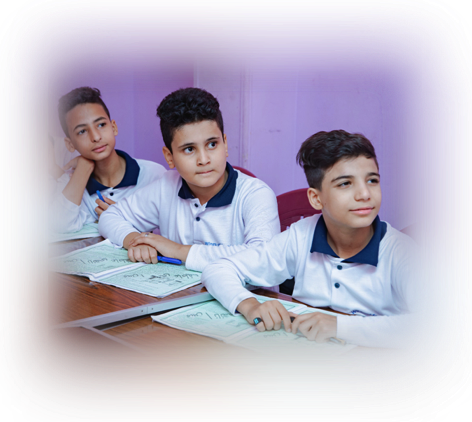
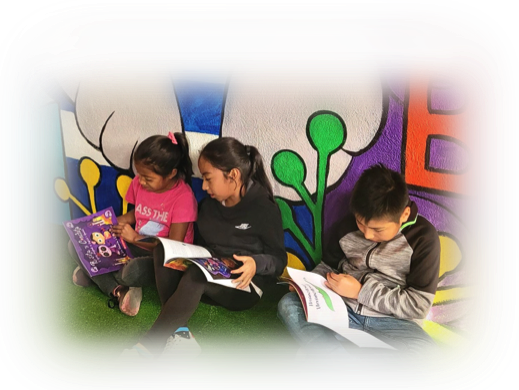


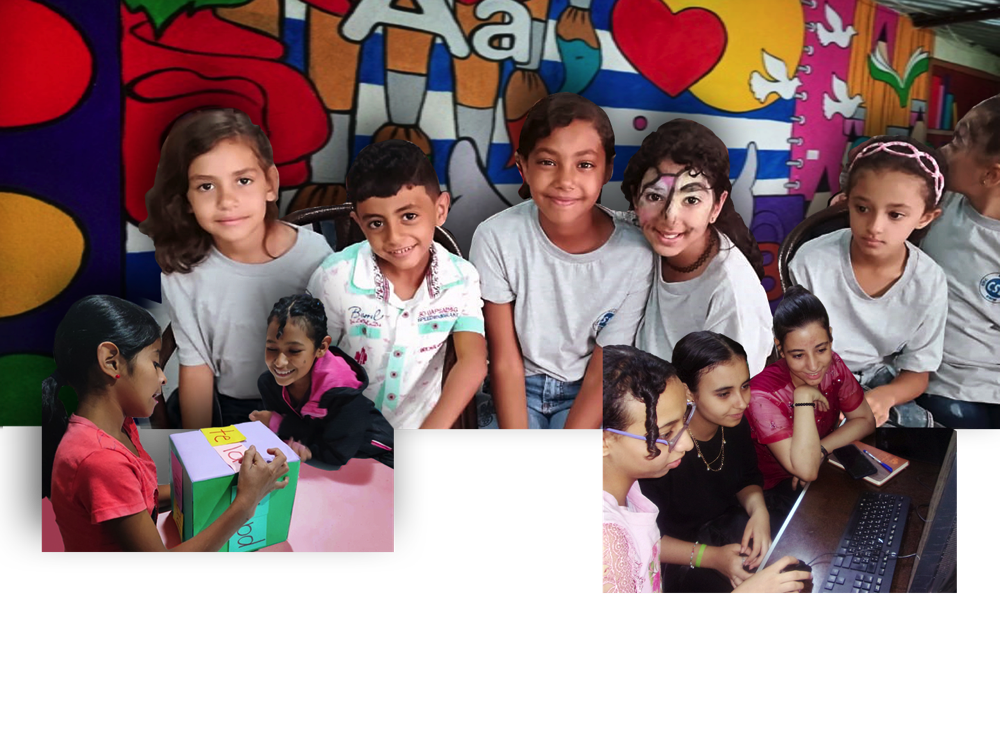
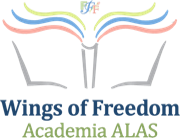
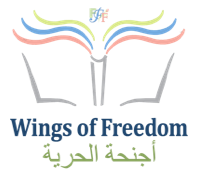
TUTORING PROGRAM
"It is easier to
build strong
children than to
repair broken
adults.“
~ Frederick Douglas ~
Wings of Freedom (Egypt) Our unique tutoring program is open year-round and provides high-quality education for impoverished children between 7 and 14 years old. We are committed to academic excellence, narrowing the economic disparity, and preparing individuals to compete for high-level positions.
We are committed to academic excellence
narrowing the economic disparity, and preparing individuals to compete for high-level positions.
Finding Freedom Through Friendship (FFF) works closely with local institutions and community leaders to identify educational gaps and develop a culture of lifelong learning. Our curriculum covers local language, English, mathematics, science, social studies, computers, and personal development. We also offer extracurricular activities such
as field trips, sports, arts, critical thinking,
problem-solving, time management, and music.
BACKGROUND
Investing in children's literacy is an imperative financial investment for the
student and the country. An estimated 59 million children in developing countries
need access to primary education. The quality of education is also a concern,
with 250 million children needing help to read, write, or count even after four
years of public schooling.
Egypt and Guatemala have a large population of marginalized children
who cannot access quality education due to poverty. These children also
face challenges such as poor academic performance, low self-esteem,
and a lack of confidence. A lack of resources, inadequate schooling
facilities, outdated textbooks, overcrowded classrooms, and ineffective
teacher exacerbate the situation. As a result, students are more likely
to drop out of school and become trapped in the cycle of poverty.
The Wings of Freedom tutoring program complements the existing public education
system and help bridge the gap between socioeconomic levels in access to quality education.
MISSION
Academia ALAS (Guatemala) As an after-school tutoring center, Academia ALAS serves the community of San Lorenzo El Cubo, Guatemala. While rural schools often
lack essential resources and struggle to provide quality education compared to
urban schools, Academia ALAS is
fully furnished with all the
necessary provisions for
producing well- educated
students. Our teachers are highly qualified and deeply
committed to the educational outcomes and well-being
of their students.
Students come to Academia ALAS with gaps in their
learning due to the limitations of the public educational
system. Our tutoring center helps fill these deficiencies
and ensure students have a solid foundation in core subjects.
The center's computer, math, and English classes are much sought after by students and their parents, who understand that these subjects are essential for competing in the Guatemalan job sector.
PHOTO GALLERY
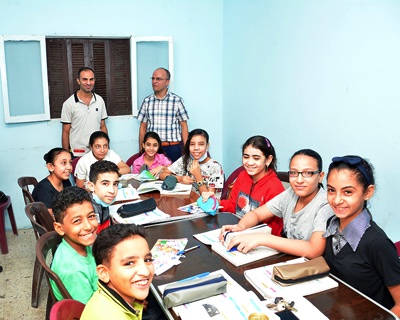
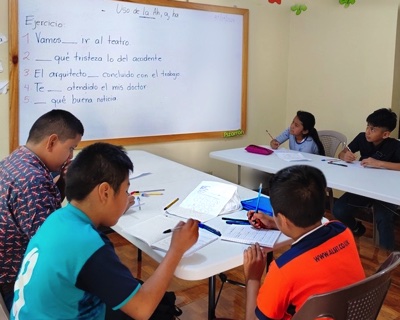
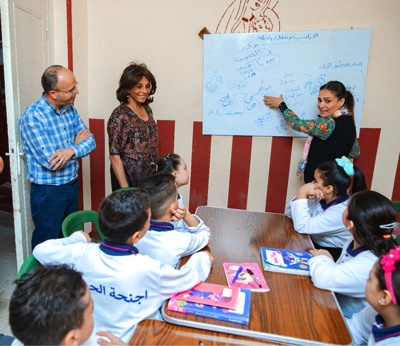
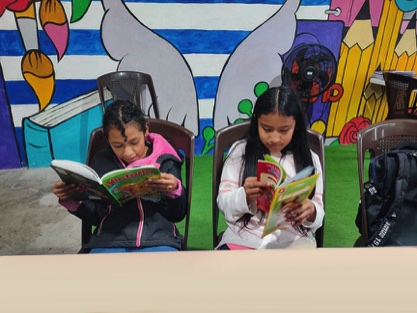
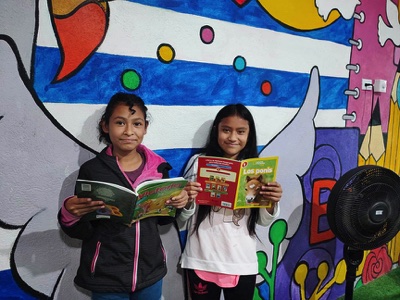
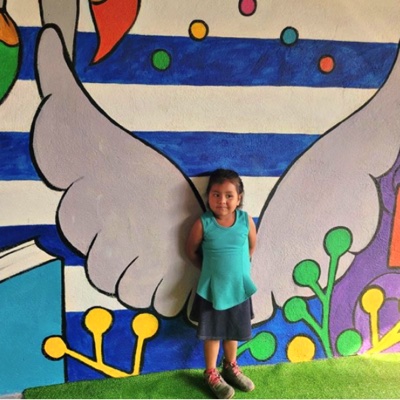
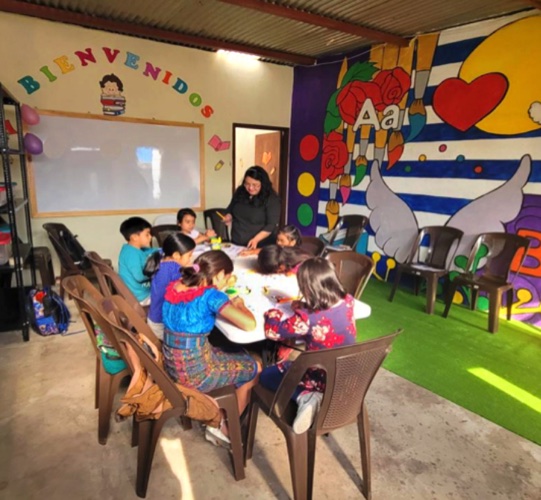
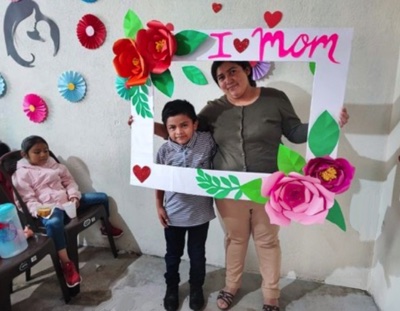
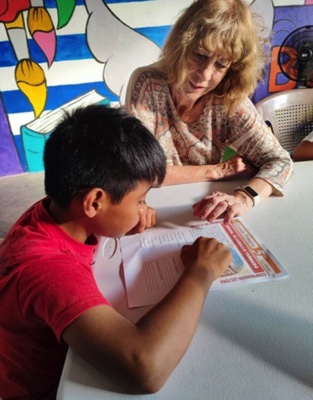
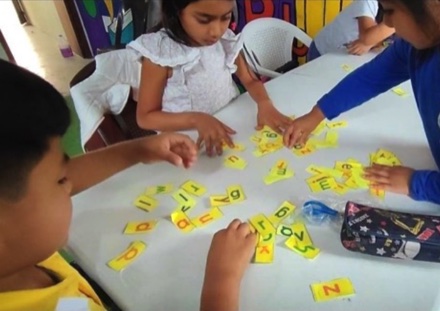
Education
is the backbone to opportunity,
curiosity, and
knowledge.

SUCCESS STORIES
(EGYPT)
Martina Mamdouh
Martina is ten years old. She is in grade 5 in primary school. Martina enjoys participating in drawing and art classes at school and the tutoring center. Martina has two older brothers. Her father is a casual worker, and her mother works as a laborer at an undergarment factory. When she joined the program, Martina was anxious and hesitant with her peers and adults at the tutoring center. She was introverted and struggled academically. She had difficulty in all subjects and did not retain information.
At home, according to Martina, her mother treated her harshly and showed her limited physical affection, refraining from hugging or kissing her. In her mother’s eyes, it is disgraceful for a mother to hug her daughter, especially since Martina is now at an age where she is no longer considered a child. That made Martina sad and felt unloved. Furthermore, her mother believed it was shameful for her daughter to talk to anyone.
The social worker observed Martina interacting with students and teachers before scheduling individual sessions. Gradually, Martina began to open up and express her fears and sources of anxiety. The social worker coached her and encouraged her to express her emotions openly. Their strong bond of trust made it possible for the social worker to hug Martina and show her love and support.
The social worker determined that Martina’s mother needed to hear her daughter's fears and provide reassuring hugs. So, the social worker advised Martina's mother about the need for affirmation and affection for her children. The message was received positively. Additionally, Martina's mother attended a Mothers' Meeting that discussed the impact of psychological and physical abuse on children. As a result, she began to care for her daughter more, assisting her with her studies and encouraging her to build self-confidence.
Martina responded immediately to the counseling from the social worker and her mother's newfound affection and attention. Martina's self-confidence has grown; she has become social and interacts with her peers and teachers. Today, Martina works diligently in her studies and has improved her grades in both the school and the tutoring center.
Come to me, all weary and burdened, and I will give you rest. - Matthew 11:28
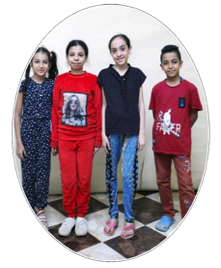
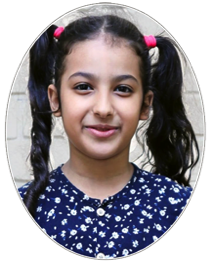
“God does the healing and renovation every time, but it is often within the context of counseling that He does it.
As Paul writes in
1 Corinthians 3:7,
“So neither the one who plants nor the one who waters is anything, but only God, who makes things grow.”
-Tacoma Christian Counseling
Nov 14, 2017
https://tacomachristian
counseling.com/articles/anxiety-
disorder-hhitili
(EGYPT)
Milad Selem
Milad is in grade 7, the first grade in the preparatory stage. He has two older brothers. His father is a shoemaker, and his mother is a housewife. Milad’s hobby is playing soccer.
Milad's academic performance was consistently poor, lacking interest in his lessons. He failed to comply with classroom and homework demands, which led to his falling behind in his studies. Additionally, Milad neglected his chores at home, causing concern for his mother.
Milad's social worker observed that Milad was not committed and showed no interest in improving his grades.
To stress the importance of education, the social worker asked Milad probing questions such as, "Do you think you'll be able to find your desired job or marry your dream girl without proper education?" Milad was taken aback by these questions and was forced to consider the potential impact of lack of education. The social worker assured him that the opportunity to succeed was still within his grasp, and he needed to take action to achieve his dreams. Milad was quiet for a few moments, clearly deep in thought, before finally agreeing to try to improve.
As the new school year began, Milad’s diligent social worker specifically asked him to focus on two essential tasks - hanging up his clothes and finishing his homework.
Milad, a young student, has undergone a remarkable transformation this academic year. Milad has renewed commitment to his studies and personal growth. He has been regularly attending tutoring classes, completing his homework promptly, and taking care of his belongings. His mother has taken note of these positive changes and is delighted to see her son's transformation. Milad's behavior shows that he has embraced a new mindset, bringing about a positive change in his life.
Strong relationships with teachers and school staff can dramatically enhance students’ motivation and, therefore, promote learning. Students with access to strong relationships are more academically engaged, have more vital social skills, and experience more positive behavior.
-Ed Trust and MDRC, July 2021-
https://edtrust.org/resource/the-
importance-of-strong-relationships/
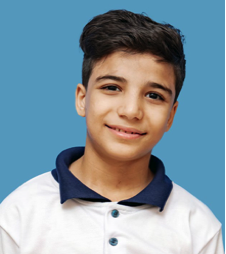
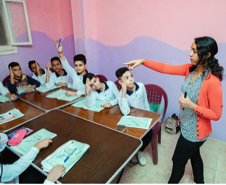
Miled in Class (2nd from front)
(EGYPT)
Marvi Hany
Marvi is in the sixth grade of primary school. She has a younger brother, who is eigh
years old. Her father does not work, and the mother works as a nanny in the nursery at
the Church of Christ Church. Marvi is a quiet girl who does not speak much.
Marvi's academic level was weak, especially English, which caused her great distress.
It also gave her a feeling of failure.
The social worker talked with Marvi regularly. Marvi was encouraged to memorize ten English words a day to improve her English. Marvi promised to give this process a try. And so, the social worker began to give ten words to Marvi to memorize every day.
Learning the English vocabulary became a routine between Marvi and the social worker. Marvi was so committed that she continued to study her English words even during the summer break.
According to the testimony of the English teachers, Marvi's level improved. Not only did her English grades improve, but also in all the other subjects as her confidence increased.
Marvi also developed a problem last summer after attending a church summer class where her mother worked. The topic was the exorcism of evil spirits from people. It was dramatic, and she became afraid of sounds and terrified of being alone.
Through sessions with the social worker, Marvi was urged to pray when she was afraid to overcome her terror. The social worker also compelled the mother not to send Marvi to that particular Church. Although Marvi is still scared, the anxiety is getting better through the interventions of the social worker and her mother. Social workers play a vital spiritual and motivational role in the child's life and home.
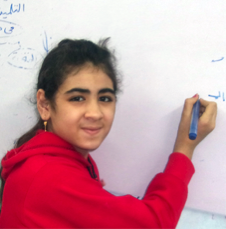
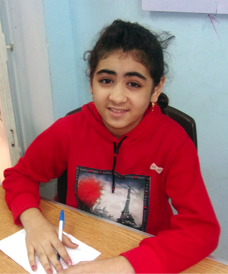
(EGYPT)
Yassa Mamdouh
When healthy body and mind work together strengthens our ability to make positive choices. Yassa is in the fifth grade of primary school. Yassa has three older brothers. Yassa joined the Wings of Freedom program in September 2021.
Yassa's father works irregularly as a carpenter. His mother works in a paper factory and returns home at late hours of the day. There are many problems between the father and mother, and of course, their relationship harms the children.
Yassa did not like to attend the weekly children's meeting. He did not care about his appearance, clothes, or personal hygiene. Yassa is a highly introverted child who does not talk easily with his classmates, not even with the social worker. He has a health problem and often appears sick.
The social worker focused on developing Yassa by encouraging him to come and participate in the weekly meetings. She also encouraged Yassa to try to bathe more often and dress better. Furthermore, the social worker insisted that Yassa's mother take her son to be examined by a pediatrician. She explained to the mother that health issues have a direct psychological impact on a child if not appropriately addressed by a doctor.
Gradually, Yassa began to attend the weekly meetings and merge with a group of children. He also started to trust the social worker to share his problems. Another apparent change is that Yassa began to care for his appearance and personal hygiene.
The social worker is now working with Yassa on his studies, which are below average in grades. In the last two weeks, Yassa's grades are beginning to improve.
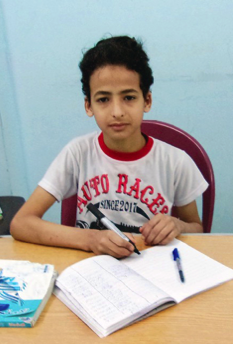
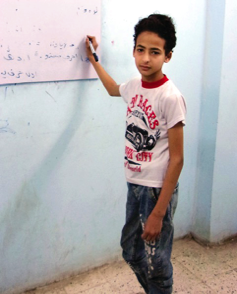



A healthy body and mind working together strengthens our ability to make positive choices.
